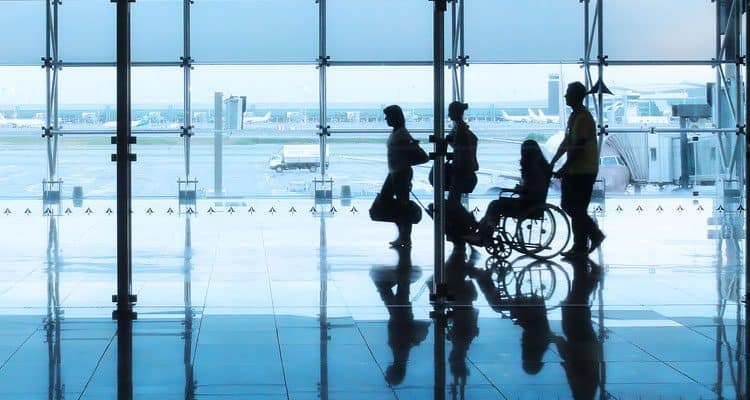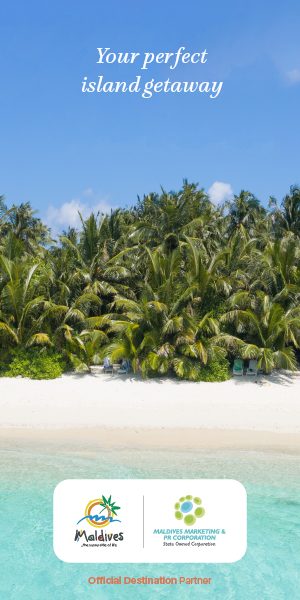The World Travel & Tourism Council (WTTC) has launched its new high-level guidelines for inclusion and accessibility in the sector which focus on the experience of travellers with disabilities and will help make the Travel & Tourism sector a more inclusive space.
These innovative and important guidelines were compiled on the basis of insights and frameworks developed by private sector leaders in Travel & Tourism, travel and disability experts, and research from intergovernmental organisations.
Divided into four pillars, the guidelines follow a similar structure to the High-Level Inclusion & Diversity Guidelines and Mental Health Guidelines WTTC released over the past six months.
The four key pillars include:
1. Developing an inclusive & accessible system
2. Creating safe spaces
3. Designing an engaging & relevant system
4. Exemplifying inclusion & accessibility
Highlights from these important guidelines include providing training to staff on disability awareness and how to support travellers with disabilities, as well as collaborating with other businesses in areas where there are gaps in accessibility knowledge, experience, and services.
The report also emphasises the importance of fostering a respectful environment at all locations and for all activities, specifically reminding staff that their attitude towards people with disabilities plays an integral role in making that customer feel welcome and included.
There is also an importance given to developing accessibility features that are clear, overt, and which such travellers do not require special assistance from staff to use.
Furthermore, the guidelines make clear that businesses should regularly and proactively engage travellers with disabilities in the creation of accessible products and services so that these meet their needs appropriately. They should also include accessibility features from the booking process, enabling travellers with disabilities to engage with the business before booking their travel service or product.
Staff should also be empowered to address customer concerns as they occur or to engage other staff members if and where necessary, and inclusive marketing should be developed to dignify representations of all people and authentically represent them.
Gloria Guevara, President & CEO, WTTC said: “WTTC is proud to release these important high-level guidelines, which will help Travel & Tourism businesses of all kinds, foster more accessible and inclusive environments.
“The Travel & Tourism sector is one of the most diverse in the world. As the report shows and according to the World Health Organization, almost everyone will temporarily or permanently experience disability at some point in their life, and about 15% of the global population live with some form of disability. It is therefore imperative that we are inclusive.
“Furthermore, throughout its very nature, the sector promotes cultural exchange and understanding, therefore it makes perfect sense that we reflect these values within the sector as well. We look forward to seeing these guidelines make real change within the workforce.”
Peter Kern, Vice Chairman and CEO, Expedia Group said: “Travel opens minds and drives better understanding between people from different cultures and identities, but sometimes travel isn’t inclusive of or accessible for people with disabilities or accessibility needs. We are proud to have collaborated with WTTC on the creation of Inclusive & Accessible Travel Guidelines, a resource we will continue to collaborate on in future development, use in our own business and advocate for their adoption across the travel and tourism industry.”
Stacy Ritter, President and CEO, Visit Lauderdale said: “We applaud WTTC on the launch of their Inclusive & Accessible Travel Guidelines. Travelers with disabilities should be embraced, welcomed and celebrated. Visit Lauderdale is committed to this, and we are proud to continue our inclusive and diverse global “Celebrate You” campaign which features disabled residents. To be truly authentic in promoting diversity and inclusion, we must include the disabled community.”
Chris Nassetta, President & CEO Hilton, WTTC Chair said: “The Travel & Tourism sector has a unique role to play in building greater understanding in our global community as we welcome travellers of all backgrounds and abilities,” said Chris Nassetta, President & CEO of Hilton and Chairman of WTTC. “WTTC’s Inclusive & Accessible Travel Guidelines provide valuable insight for our industry as we continue on our journey to create truly inclusive and unforgettable experiences for all.”
John Sage, President, Accessible Travel Solutions and the author of the guidelines said: “People with disabilities (PwD’s) have historically encountered many accessibility challenges while traveling. Browsing, booking, flying, sightseeing, relaxing, and sleeping all present their own specific obstacles. Consequently, many PwD’s must spend many hours handling their own travel details or they stay home. WTTC’s Inclusive and Accessible Travel Guidelines are an important step forward in bringing accessibility into the mainstream thereby making travel accessible for all.”




